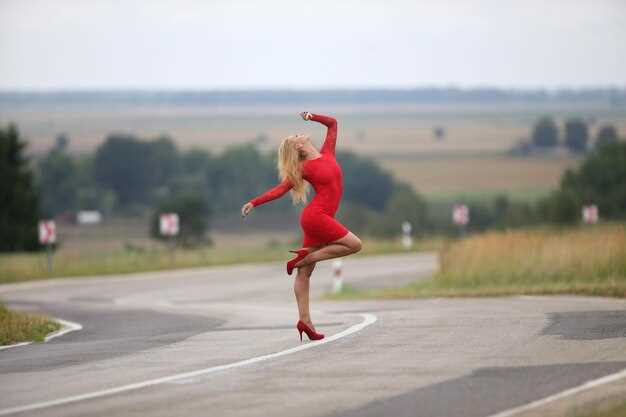
The landscape of competitive motorsports is undergoing a significant transformation, with female racers stepping into the spotlight like never before. Historically dominated by men, this high-speed arena is now witnessing a surge of talented women who are not only competing but excelling at the highest levels. Their presence is a powerful reminder of the importance of inclusion in sports, breaking barriers and challenging stereotypes that have long existed in the racing community.
Female racers are proving that skill, determination, and passion know no gender. From the Formula series to NASCAR, women are shattering records and earning respect on tracks worldwide. Their stories of perseverance and success inspire a new generation of aspiring racers, showing that the race isn’t just for the boys anymore. As these women take the wheel, they pave the way for a more diverse and inclusive future in motorsports, championing the notion that anyone can chase their dreams regardless of their background.
Moreover, the rise of female racers is sparking conversations about inclusion in the broader context of sports. Initiatives aimed at supporting women in motorsports are gaining momentum, with organizations and sponsors increasingly recognizing the value of diverse representation. As we celebrate the achievements of these trailblazing women, it’s essential to acknowledge their role in shifting the paradigm and creating an environment where everyone, irrespective of gender, can thrive in the thrilling world of racing.
Breaking Stereotypes: Female Presence in Racing Circuits

The presence of women in racing circuits has steadily increased, showcasing a growing shift in the traditionally male-dominated world of motorsport. This change signifies not just the emergence of female racers but also a broader movement toward inclusion within the industry. Women like Danica Patrick and Jamie Chadwick have proven that skill and determination know no gender, challenging the stereotypes that have long persisted.
With their remarkable talent, female racers are breaking barriers and inspiring a new generation of girls to pursue their dreams in competitive motorsport. Initiatives aimed at promoting diversity have resulted in more opportunities for women, including specialized training programs and sponsorships focused on female racers. These efforts are essential for creating an inclusive environment that recognizes and nurtures the potential of women in racing.
Moreover, the rising visibility of women in motorsport is crucial for changing perceptions among fans and stakeholders alike. As female racers take to the tracks, they not only compete at high levels but also serve as powerful role models. Their achievements amplify the message that motorsport is for everyone, irrespective of gender. By highlighting the stories of successful female athletes, the industry can continue to dismantle outdated misconceptions and encourage more inclusive practices.
In conclusion, the increasing presence of women in racing circuits is a testament to the ongoing efforts to promote diversity and inclusion in motorsports. As these female racers continue to excel and capture the spotlight, they are not only redefining what it means to be a competitor but also paving the way for future generations to break through the barriers that remain.
The Role of Mentorship in Supporting Female Racers
Mentorship plays a crucial role in promoting inclusion and success for female racers in the competitive world of motorsport. Mentors provide guidance, support, and resources that help aspiring female athletes navigate the challenges of a male-dominated industry.
Key aspects of mentorship in motorsport include:
- Knowledge Sharing: Experienced mentors can share insights on technical skills, race strategies, and industry nuances that may not be readily available to newcomers.
- Network Access: Mentors can introduce female racers to essential contacts, sponsors, and teams, facilitating opportunities that might otherwise remain out of reach.
- Emotional Support: The pressures of racing can be daunting. A supportive mentor provides encouragement, helping female racers maintain confidence despite setbacks.
- Role Modeling: Successful female mentors demonstrate that success in motorsport is achievable, inspiring the next generation to pursue their passion for racing without hesitation.
Establishing structured mentorship programs can further enhance the support system for female racers. These programs can include:
- Formal pairing of veteran racers with newcomers to create lasting mentorship relationships.
- Workshops and seminars led by mentors, focusing on various aspects of racing and career development.
- Networking events aimed at building connections among female racers and industry professionals.
By fostering mentorship opportunities, the motorsport community can promote greater inclusion, empowering female racers to thrive and excel in competitive racing environments. This collaborative effort not only elevates individual careers but also enriches the entire motorsport landscape, making it more diverse and equitable.
Challenges Faced by Women in Motorsport Careers
The world of motorsport has long been dominated by male racers, presenting unique challenges for women aspiring to excel in this competitive environment. One of the primary obstacles is the lack of inclusion within the industry. Female racers often find themselves battling stereotypes and biases that can undermine their skills and contributions. This mindset limits opportunities for women to showcase their talent and to secure sponsorships, which are crucial for a successful racing career.
Moreover, there is a noticeable absence of female role models in high-profile racing categories. The scarcity of women in leadership positions can leave aspiring female racers without mentorship or guidance, affecting their confidence and growth in the sport. The culture within many motorsport teams also tends to favor male camaraderie, making it difficult for women to feel fully integrated and supported.
Financial barriers further complicate the situation, as racing requires significant investment in equipment, training, and participation fees. Many female athletes struggle to access the necessary funding or sponsorship deals compared to their male counterparts, limiting their potential to compete at higher levels.
Lastly, the physical demands of motorsport can pose additional challenges. While both male and female racers face intense competition, women may have to endure heightened scrutiny regarding their abilities and performance. Overcoming these perceptions often involves not only showcasing skill on the track but also actively advocating for inclusion and equality within the sport.
Addressing these challenges requires concerted efforts from the motorsport community, including increased support for female racers, mentorship programs, and a commitment to fostering an inclusive environment that celebrates diversity on and off the track.
Promoting Female Talent in Karting and Junior Categories

As competitive motorsports continue to evolve, it is crucial to foster an environment where female racers can thrive, especially in karting and junior categories. These entry-level platforms serve as essential stepping stones for young talents aspiring to reach the highest echelons of motorsport. Promoting inclusion and support for female racers at this foundational stage can significantly shape the future landscape of the sport.
Efforts to promote female talent in karting can take various forms, including dedicated initiatives aimed at encouraging participation, providing mentorship programs, and ensuring access to resources. Organizations and racing teams must actively seek to create environments that are not just welcoming but also empowering for young women interested in motorsports.
| Initiative | Description |
|---|---|
| Scholarship Programs | Financial support for aspiring female racers to cover entry fees, kart rentals, and training expenses. |
| Mentorship Schemes | Connections between experienced female racers and newcomers to share knowledge and experiences. |
| Women-Only Events | Competitions specifically for female racers to build confidence and showcase their skills. |
| Awareness Campaigns | Promotions that highlight the achievements of female racers and challenge stereotypes. |
| Partnerships with Schools | Collaborating with educational institutions to introduce karting programs for young girls. |
In addition to institutional support, grassroots movements significantly contribute to the inclusion of female racers. Local karting clubs can implement training camps and workshops that focus on skill development while actively recruiting young girls. By fostering a community that encourages female participation, the sport will cultivate a new generation of competitive female drivers.
The motorsport industry, sponsors, and media also play critical roles in promoting female talent. Increased visibility through coverage of female racers in karting and junior categories can inspire young girls and potential female racers. Highlighting their journeys, successes, and challenges creates a narrative that resonates and motivates future participants.
In summary, promoting female talent in karting and junior racing categories requires concerted efforts across multiple avenues. By ensuring inclusion and support at this fundamental level, the motorsport community can help close the gender gap and pave the way for a more diverse and competitive landscape in motorsports.
Impact of Social Media on Women’s Visibility in Motorsport
Social media platforms have revolutionized the way female athletes in motorsport connect with fans, sponsors, and the broader community. This digital landscape has played a crucial role in enhancing the inclusion of women in a traditionally male-dominated arena. Through platforms like Instagram, Twitter, and Facebook, female racers can showcase their skills, share their journeys, and build personal brands that resonate with diverse audiences.
The prevalence of high-quality content, such as race highlights, behind-the-scenes insights, and personal stories, empowers women to establish a visible presence within the motorsport industry. By engaging with their followers and sharing authentic experiences, these athletes foster a sense of community and inspire the next generation of female racers. This visibility not only promotes their individual careers but also breaks down stereotypes associated with women in motorsport, paving the way for greater inclusion.
Moreover, brands are increasingly recognizing the value of female representation within their marketing strategies. When women in motorsport gain increased visibility through social media, it leads to more sponsorship opportunities and collaborations. This support is essential for creating a sustainable future for female athletes, as it allows them to compete at high levels and continue to push for equality in the sport.
In conclusion, the impact of social media on the visibility of women in motorsport cannot be overstated. It serves as a powerful tool for advocating inclusion, enhancing representation, and inspiring both current and future generations of female racers.
Future Trends: Increasing Inclusion in Global Motorsport Events
The realm of motorsport is evolving, with a notable shift towards greater inclusion of female participants in various capacities, from drivers to engineers and team management. This transition reflects a broader recognition of the importance of diversity in achieving competitive excellence and innovation within the sport.
Race series across the globe are taking measurable steps to create an environment that fosters female talent. Initiatives such as all-female racing teams, mentorship programs, and dedicated scholarships provide platforms for women to showcase their skills and gain necessary experience. These efforts not only aim to elevate female representation but also inspire future generations of women in motorsport.
In the coming years, we can expect to see more global motorsport events actively promoting inclusion by implementing policies that encourage diverse participation. Collaborations between existing racing organizations and advocacy groups will likely become more prevalent, focusing on tackling barriers that have historically limited access for women in competitive racing sectors.
Furthermore, the rise of social media and digital platforms presents unique opportunities for female athletes to gain visibility, engage with fans, and promote their achievements. This visibility is crucial for attracting sponsorships and funding, which are essential for advancing women’s presence in motorsport.
Overall, as the motorsport industry continues to embrace inclusivity, the trend toward increasing female participation is anticipated to drive not only a cultural shift but also enhanced performance across the board, ultimately enriching the experience for fans and competitors alike.




